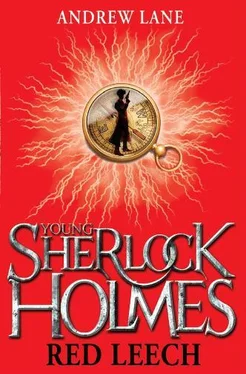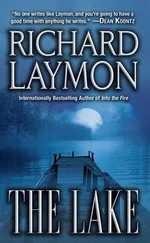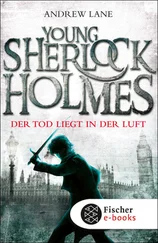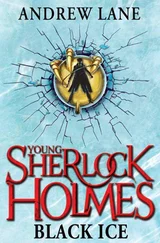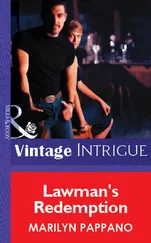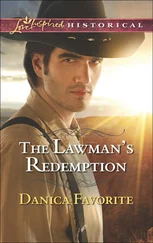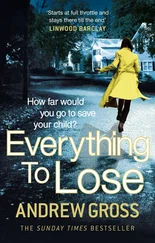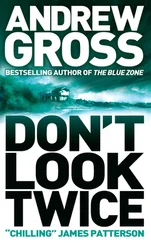“I did,” Sherlock said.
“There’s scratches on your hands that I don’t recall from yesterday’
“I think they came up overnight,” Sherlock said.
“Maybe they did.” Crowe gazed at Sherlock levelly for a few moments.
“What’s been happening?” Sherlock asked. “What’s the news on Balthassar and the invasion of Canada?”
“The balloon attack on the Confederate Army was called off,” Crowe replied. “Someone set fire to the balloons. Probably one of Balthassar’s agents. That’s the general theory, anyway, and who am I to disagree?”
At least a massacre was avoided,” Sherlock pointed out.
“It was,” Crowe agreed. “The Secretary of War was all for a big confrontation between his troops and Balthassar’s, but his orders got held up somehow, an’ I took the opportunity to put a plan of my own into effect. We used John Wilkes Booth to tell Balthassar’s Army to disperse. He can be very persuasive, when he’s given the proper medication an’ when he’s offered an alternative to the gallows. I don’t think many of the troops had the stomach for a real fight. They were glad to be told to go home.”
“And John Wilkes Booth?”
“As far as history is concerned, he’s already dead. A man named John St Helen will be committed to a lunatic asylum in Baltimore. If he’s given the correct medication at the right dose, he should be manageable. Until his death, at least.”
“Incarceration,” Sherlock said.
“He’s an assassin, when all’s said an’ done. It’s better than he deserves.”
Sherlock nodded, not so much in agreement but more because he didn’t particularly want to argue. And what about us? What happens next?”
“Next,” Crowe said, “we return to New York and get tickets for England. That’ll probably take a day or two. I think we’ve spent more than enough time here. Much as I love the country of my birth, I do enjoy England. Overcooked vegetables and steamed puddings excepted.”
“You’re not... staying?” Sherlock asked tentatively.
Crowe shook his massive head. “Too much to do elsewhere,” he said. “There’s lots of us here, but only me in England. I got a job to do. An’ I promised your brother I’d teach you to think logically an’ use evidence, an’ I suspect I’ve not done as much on that front as I should’ve done.”
Later that day the four of them — Crowe, Virginia, Sherlock and Matty — took a train back to New York, and Crowe found them tickets on a ship leaving in a few days for England. They even managed to eat at the famed Niblo’s Garden on their last night — oysters, of course, an huge steaks — but Sherlock found himself distanced from it all, watching it go past with little emotion. It was as if he’d been through so much over the past few days that something had been burned out in him. He hoped it would come back some time soon. He didn’t like the feeling of being separate from the rest of the world.
Virginia was worried about him, he could tell. She kept glancing across at him while they were eating, and once or twice she would just rest her hand on his arm for a moment, then take it away when he didn’t react.
A few days later, on the ship, watching from the rail as New York harbour slipped away in the distance, Sherlock found himself shivering despite the warmth of the sun and the lack of wind. He felt ill, out of sorts, but he didn’t know how to make himself better.
“So,” a familiar voice said from beside him, “how was the great metropolis of New York? Did you do whatever it was that you needed to do?”
He turned his head. Rufus Stone, the Irish violinist he’d met on the journey out, was standing nearby, leaning on the rail. His violin case was slung across his back and his long black hair was loose across his collar.
“I thought you were staying in America?” Sherlock said, surprised.
Ah, about that,” Rufus said ruefully. “I may not have mentioned, but I was in a bit of trouble, back in the old country, and I was hoping that seeking the fabled pot of gold at this end of the rainbow would be a good move, but it turns out that people have been sending messages along that very same rainbow, and someone was waiting for me when I got here.” He sighed. “Who would have thought that the Irish would have the whole criminal underworld in New York sewn up like a corpse in a shroud?”
“So what happens now?” Sherlock asked. “Where do you go?”
“That depends,” Rufus said, gazing out across the water. “Do you know of anyone who is in desperate need of a violin tutor?”
“Funnily enough,” said Sherlock, “I think I do.”
I’ve consulted a number of books in order to get the history of the time and the area about right. In particular, I would like to acknowledge the following works:
London’s Lost Route to Basingstoke: The Story of the Basingstoke Canal , by P. A. L. Vine, published by Allan Sutton Publishing, 1968 (revised and expanded in 1994) — great material about the local waterways and canals in the Farnham area.
The Tongham Railway by Peter A. Harding, self-published 1994 — obviously the product of one man’s obsession, but immensely useful.
Bygone Farnham by Jean Parratt, published by Phillimore & Co. Ltd, 1985. Useful if only for the exhaustive list of pubs and taverns it contains, which suggests that every second house in Farnham sold beer.
London Under London — A Subterranean Guide by Richard Trench and Ellis Hillman, published by John Murray (the original publisher of the Sherlock Holmes stories in book form), 1984. The classic guide to London’s underground rivers and tunnels.
Subterranean City — Beneath the Streets of London by Antony Clayton, published by Historical Publications, 2000. Covers much the same ground (as it were) as Trench and Hillman’s book, but benefits from material more recently discovered. Or perhaps “unearthed” would be a better word.
The London of Sherlock Holmes by Michael Harrison, published by David & Charles, 1972. An invaluable and immaculately researched investigation of what London would have looked like to the eyes of Sherlock Holmes.
And so here we are, at the end of young Sherlock Holmes’s second adventure. I hope you enjoyed reading it as much as I enjoyed writing it.
In the first book, Sherlock had started to pick up his logical way of thinking and his eye for evidence from the genial but rather mysterious Amyus Crowe. I also showed him starting to become interested in bees and in boxing, setting the scene for the skills and interests he later displays in the stories by Arthur Conan Doyle (in The Sign of the Four, for instance, a bare-knuckle fighter compliments Sherlock by saying, “You’re one that has wasted your gifts. You might have aimed high, if you had joined the fancy” — “the fancy” being a slang term for the boxing fraternity).
In this book I have tried to imagine how and where Sherlock first learned to play the violin, as well as the events which provoked him to take an interest in tattoos (again, in the Conan Doyle stories, he can work out where a tattoo was done just by the pigments in the ink). In a more general sense I’ve laid some of the groundwork for the sympathy that Sherlock later shows towards America and Americans (Sherlock says in one of Conan Doyle’s stories that he expects there to be a day when people in Great Britain and American will some day be “citizens of the same worldwide country under a flag which shall be a quartering of the Union Jack with the Stars and Stripes’).
I’ve tried to make sure that the things that happen in this book are as historically accurate as possible. The SS Scotia did indeed go back and forth across the Atlantic, for instance, taking passengers from Liverpool to New York, as did the SS Great Eastern. I’m not sure whether it ever sailed from Southampton or not, but for the purposes of this book I’m assuming that it did at least once. The Scotia made its first voyage as a passenger ship in 1862 under Captain Judkins and its last in 1875, and for a while it held the record for the fastest transatlantic crossing, but its consumption of coal made it uneconomic and it did not make the Cunard Company, who built it, the profits they expected. After spending some years laying undersea cables for transatlantic telegraph messages the Scotia ended up sinking off the island of Guam in the Indian Ocean in 1904. For details on the SS Scotia, and other ships that plied the Atlantic passenger trade, I am indebted to the following books:
Читать дальше
